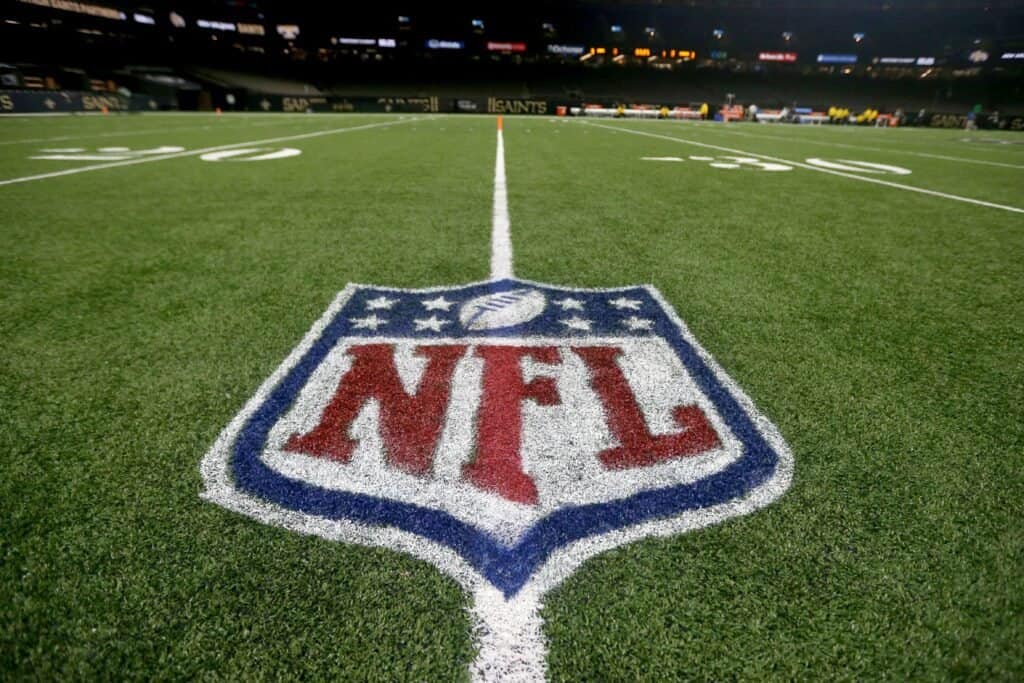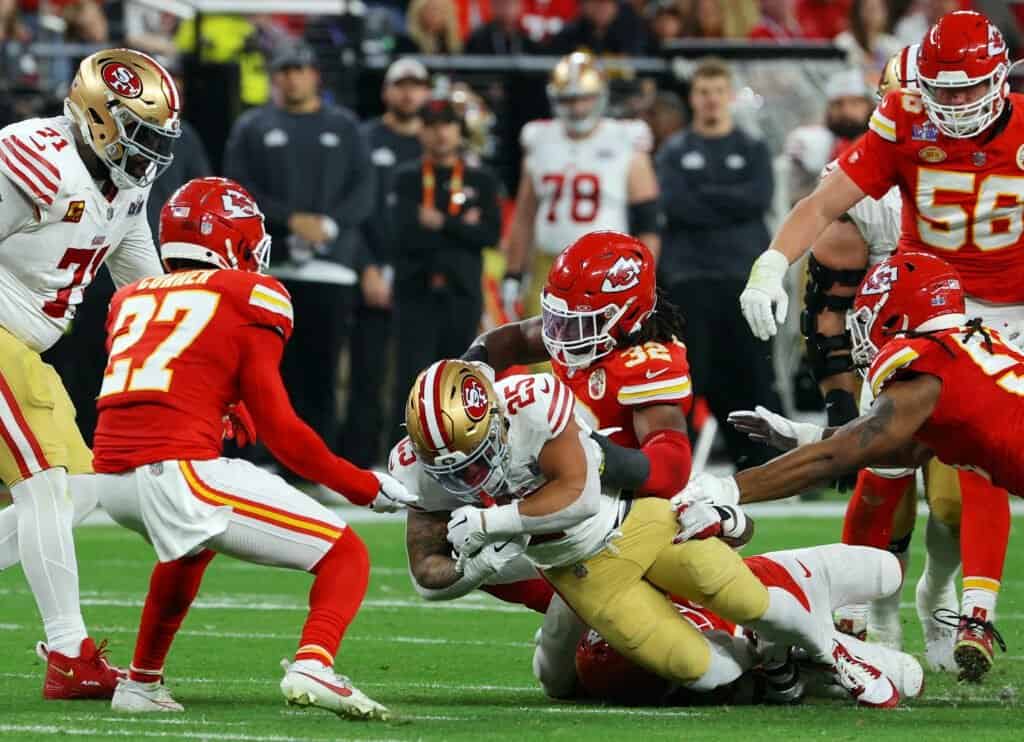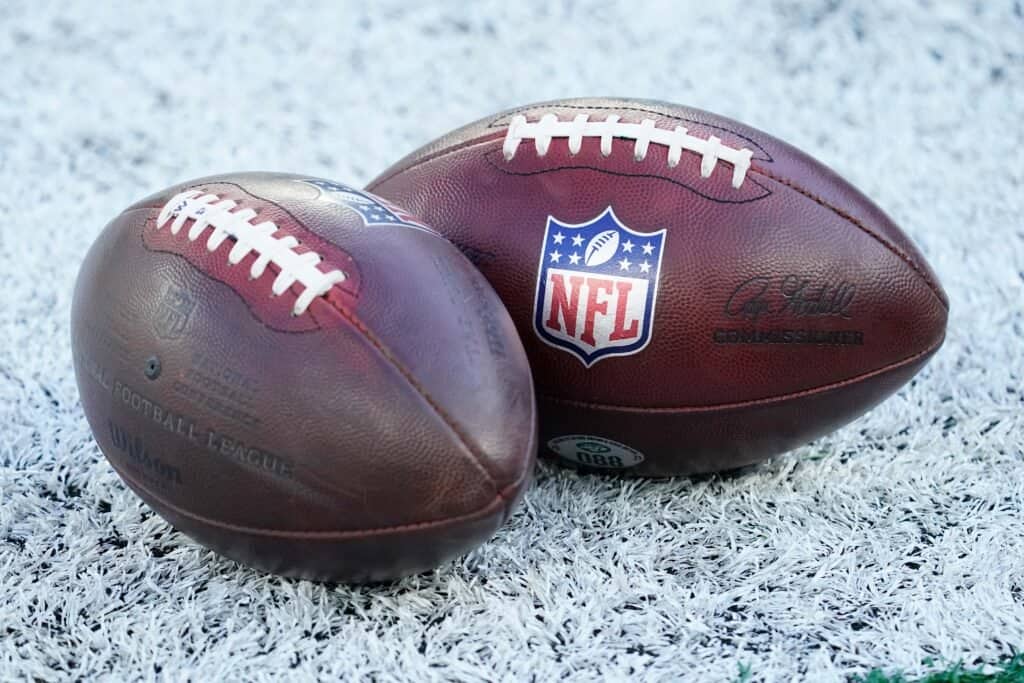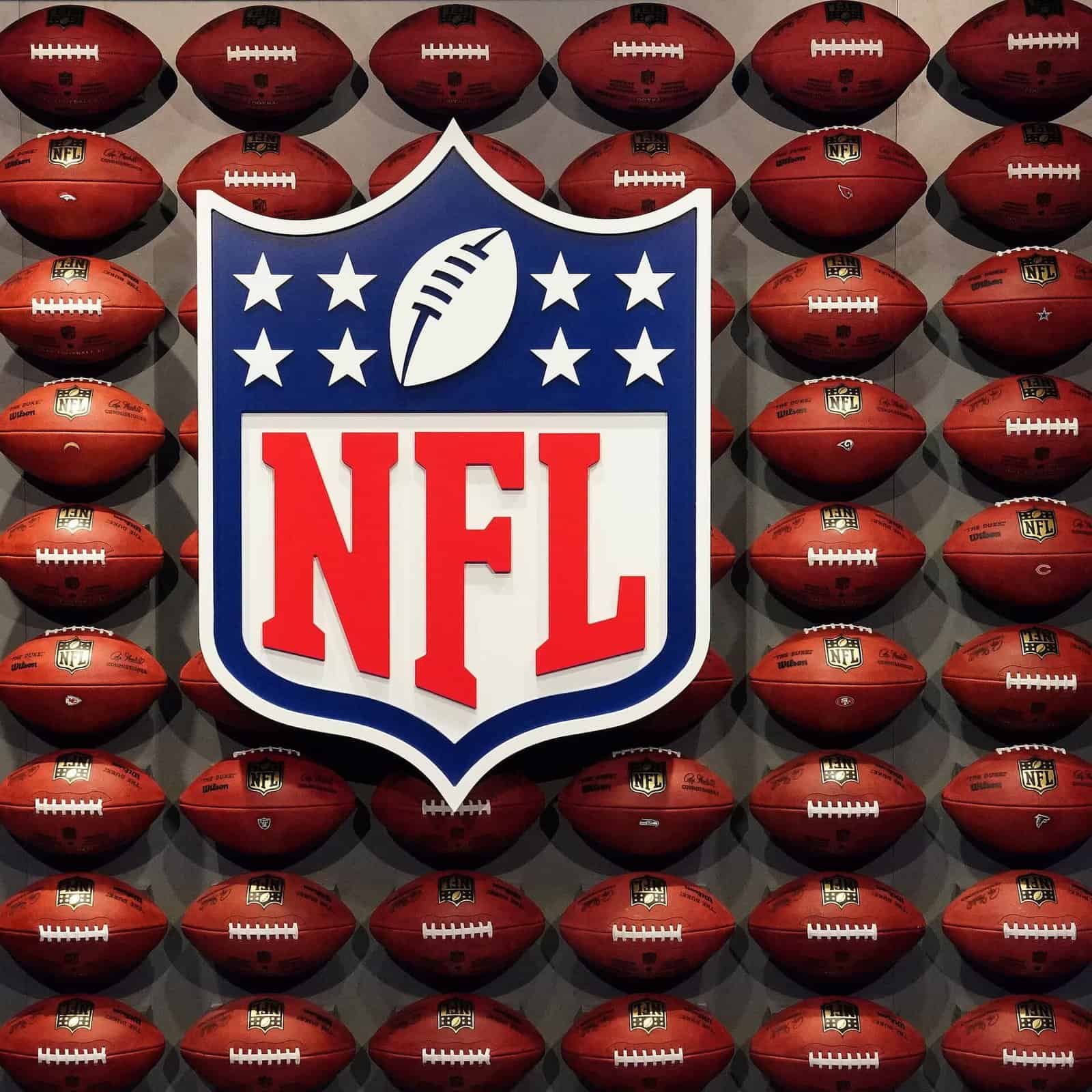In a dramatic turn of events, the NFL narrowly escaped a financial catastrophe when U.S. District Judge Philip Gutierrez overturned a colossal $4.7 billion verdict.

This unexpected decision spared the league from a potential financial upheaval that could have significantly impacted its broadcast model and overall economic stability.
-
How many teams are there in NFL?
The NFL is composed of 32 teams, split into two conferences, each containing 16 teams. Each conference is further divided into four divisions, with each division comprising four teams.
Read More: Is the NFL Rigged? Alleged Script Leak Reveals Next Five Super Bowls
The Legal Drama Unfolds
The controversy centered around the NFL’s exclusive deals with its broadcast partners, which were previously deemed to violate antitrust laws. A jury found that the NFL, along with its 32 teams, conspired to monopolize out-of-market games, causing inflated prices for the popular Sunday Ticket package. This led to the initial multi-billion-dollar verdict against the league.
The lawsuit accused the NFL of colluding with major broadcasters to lock in exclusive deals that prevented other networks and streaming services from airing out-of-market games. Fans argued that this lack of competition led to exorbitant prices for the Sunday Ticket package, which provides access to games not broadcast in the viewer’s local market. The jury’s decision was seen as a landmark moment in the fight against perceived monopolistic practices in professional sports.
Judge’s Game-Changing Decision
Judge Gutierrez’s pivotal ruling hinged on the exclusion of key expert testimonies that were initially considered during the trial. The judge determined that without these testimonies, no reasonable jury could conclude a class-wide injury or significant damages. This flaw in the prosecution’s case nullified the $4.7 billion verdict, providing a lifeline to the NFL.
The expert testimonies in question were crucial to the prosecution’s argument, as they aimed to demonstrate the financial harm suffered by fans due to the NFL’s exclusive broadcast agreements. Judge Gutierrez’s decision to exclude these testimonies was based on his assessment that they did not meet the necessary legal standards for admissibility. Without this critical evidence, the case against the NFL weakened considerably, leading to the eventual overturning of the verdict.
Eight Years of Legal Battles for NFL
The lawsuit, which spanned eight years, threatened to deplete nearly $15 billion from the NFL due to the tripling effect of antitrust damages. The financial repercussions of the original verdict extended far beyond monetary losses, potentially necessitating a complete overhaul of the NFL’s broadcast strategies and agreements.

During this lengthy legal battle, the NFL faced immense pressure to defend its broadcast practices and maintain its lucrative deals with major networks. The possibility of losing billions of dollars in damages prompted the league to invest heavily in its legal defense, seeking to protect its financial interests and preserve the existing broadcast model that has been a cornerstone of its revenue generation.
Jury Verdict Overturned
In June, a jury sided with disgruntled fans, agreeing they had overpaid for the Sunday Ticket package. The verdict was seen as a significant win against monopolistic practices. However, such jury decisions are notoriously difficult to overturn, making Judge Gutierrez’s ruling particularly controversial and impactful.
The jury’s decision was celebrated by many as a victory for consumer rights, highlighting the power imbalance between major sports leagues and their fans. However, the NFL’s legal team remained determined to challenge the verdict, filing motions and appeals to overturn the decision. Judge Gutierrez’s ruling to set aside the jury’s verdict was met with mixed reactions, with some praising the decision for its legal merits and others criticizing it as a setback for consumer protection.
Implications for the NFL
Had the original verdict stood, the NFL would have faced unprecedented financial strain and potentially been forced into renegotiating its exclusive broadcast agreements. The way fans consumed out-of-market games could have shifted dramatically, altering the entire landscape of NFL broadcasts.
The financial burden of a $4.7 billion payout could have led the NFL to seek alternative revenue streams, potentially exploring new broadcast models or partnerships with emerging digital platforms. This shift could have had far-reaching implications for the league’s business operations, affecting everything from team finances to player salaries and the overall fan experience.
A Sigh of Relief for the League
With the verdict now overturned, the NFL can maintain its existing broadcast arrangements without the looming threat of a multi-billion-dollar payout. This legal reprieve underscores the complexities and high stakes involved in antitrust litigation within professional sports.
The decision allows the NFL to continue its current broadcast strategy, focusing on maximizing viewership and revenue through its partnerships with major networks. The league can now redirect its attention to other pressing matters, such as expanding its global reach, enhancing fan engagement, and navigating the evolving landscape of sports media.
Broader Implications
As the dust settles, fans and legal analysts are left contemplating the broader implications of this case. The NFL, for now, remains unscathed, but the shadow of antitrust scrutiny continues to loom over the league. This case serves as a reminder that the legal battles in professional sports are far from over and can have significant ramifications on the industry’s landscape.

The outcome of this case may influence future antitrust litigation involving other sports leagues and entertainment industries. It highlights the challenges of regulating monopolistic practices in a rapidly changing media environment and underscores the importance of legal standards in determining the admissibility of expert testimonies in complex cases.
Judge Philip Gutierrez’s decision to overturn the $4.7 billion verdict in the NFL Sunday Ticket case marks a significant moment in sports law. It highlights the intricate balance between legal interpretations and the financial health of major sports leagues. While the NFL can momentarily breathe easy, this case serves as a stark reminder of the ongoing legal challenges that continue to shape the future of professional sports.
As the NFL moves forward, it must remain vigilant in its business practices, ensuring compliance with antitrust laws while continuing to deliver a compelling product to its vast fanbase. The legal landscape for professional sports remains dynamic and unpredictable, and the NFL’s ability to navigate these challenges will play a crucial role in its long-term success and stability.



[…] NFL Dodges $4.7 Billion Bullet as Federal Judge Overturns Sunday Ticket Trial Verdict […]